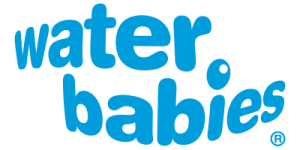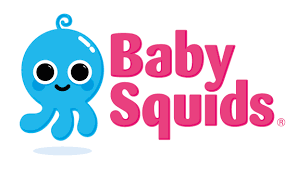Baby Swimming Lessons
For each provider we have included a link to their ‘find a pool’ page, so that you can check if they provide classes near you.
👍 3 Tips For Finding Baby Swimming Lessons Near You
1 – Check Local Council & Swimming Pool Websites
If you are lucky your local council may provide baby swimming lessons at your local swimming pool/leisure centre.
Council provided lessons may be cheaper than going with a private baby swimming lessons provider.
2 – Ask For Lessons From The Council/Swimming Pool
If your council or swimming pool don’t have lessons already you can try asking – they may be able to find a provider or train up a member of staff.
3 – Other Sites to Find Baby Swimming Lessons Near You
We have a list of the top baby swimming lessons providers above, but there are some sites to find lessons – see the list below:
Swim Nappies
All baby swimming lesson providers will insist on the use of swim nappies.
Swim nappies help protect from accidents leaking into the pool.
There are two main types of swim nappies, reusable and disposable.
At BabySwimming.org.uk we recommend the use of reusable swim nappies as they are better for the environment.
FAQs
- At what age can my baby start swimming lessons?
Babies can typically begin swimming lessons as early as 4 to 6 months old. However, it is important to consult with your paediatrician before enrolling your baby in swimming lessons, as they can provide guidance based on your baby’s individual needs and development.
- Are swimming lessons safe for my baby?
Yes, swimming lessons are generally safe for babies when conducted by certified and experienced instructors who prioritize safety. Ensure the swimming school or instructor is certified, follows safety guidelines, and maintains clean and well-maintained facilities.
- What are the benefits of baby swimming lessons?
Baby swimming lessons offer numerous benefits, including improved motor skills, muscle development, cardiovascular health, and increased confidence in the water. Additionally, swimming lessons can help develop a strong bond between parents and their babies.
- How long is a typical baby swimming lesson?
Baby swimming lessons usually last between 30 minutes to an hour. The duration may vary depending on the baby’s age, comfort level, and individual progress.
- What should my baby wear to swimming lessons?
Your baby should wear a comfortable, well-fitting swimsuit or swimming nappy during lessons. Some swim schools may require a specific type of swim nappy or swimsuit, so be sure to check their guidelines.
- How often should my baby attend swimming lessons?
Most baby swimming lesson programs recommend one session per week to ensure consistent progress and reinforcement of skills. However, the frequency may vary depending on your baby’s age, comfort level, and the swim school’s curriculum.
- Can I join my baby in the water during swimming lessons?
In most baby swimming programs, parents or caregivers are encouraged to participate in the water alongside their baby. This helps create a supportive and familiar environment for the baby, and it allows parents to learn essential water safety skills.
- How long does it take for my baby to learn essential swimming skills?
The duration to learn essential swimming skills varies for each baby based on factors such as age, physical abilities, and frequency of lessons. It is essential to be patient and consistent, as babies develop and progress at their own pace.
- What if my baby is afraid of the water or has difficulty adjusting to swimming lessons?
It is normal for babies to be apprehensive about the water initially. A patient and gentle approach, along with consistent exposure to water, can help your baby become more comfortable. Discuss any concerns with the swimming instructor, who can offer guidance and support tailored to your baby’s needs.
- How can I support my baby’s progress in swimming lessons outside of class?
Encourage your baby’s comfort and confidence in the water by providing regular opportunities for water play, such as bathing or visiting a local pool. Reinforce the skills learned in swimming lessons, and always prioritize safety by closely supervising your baby around water.






